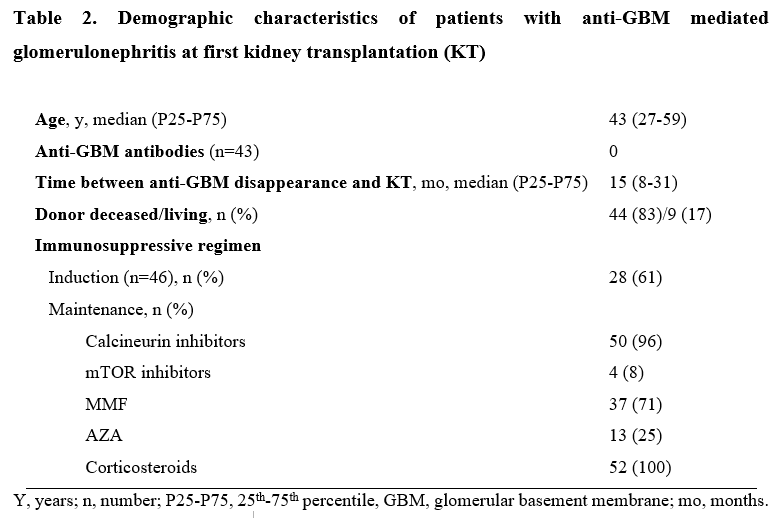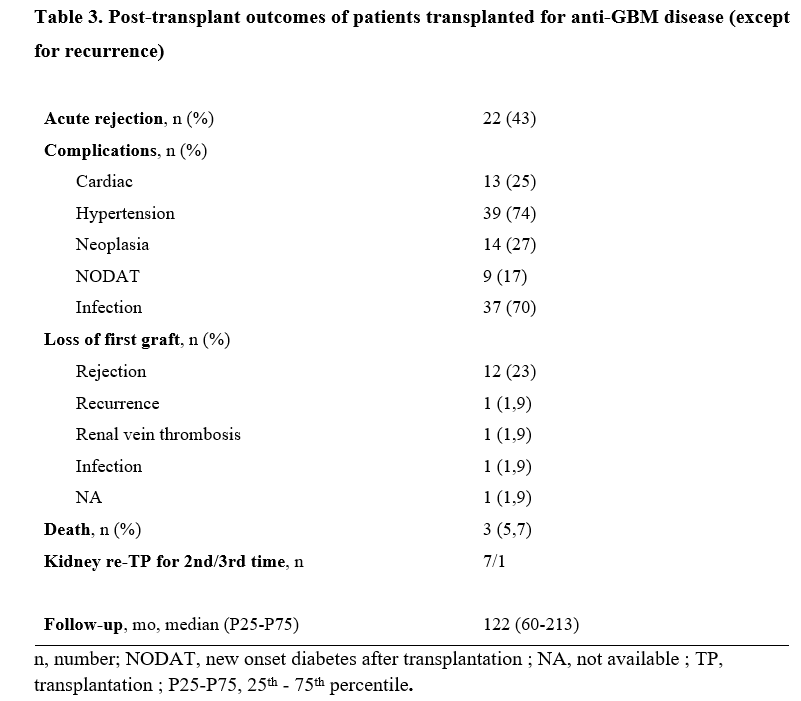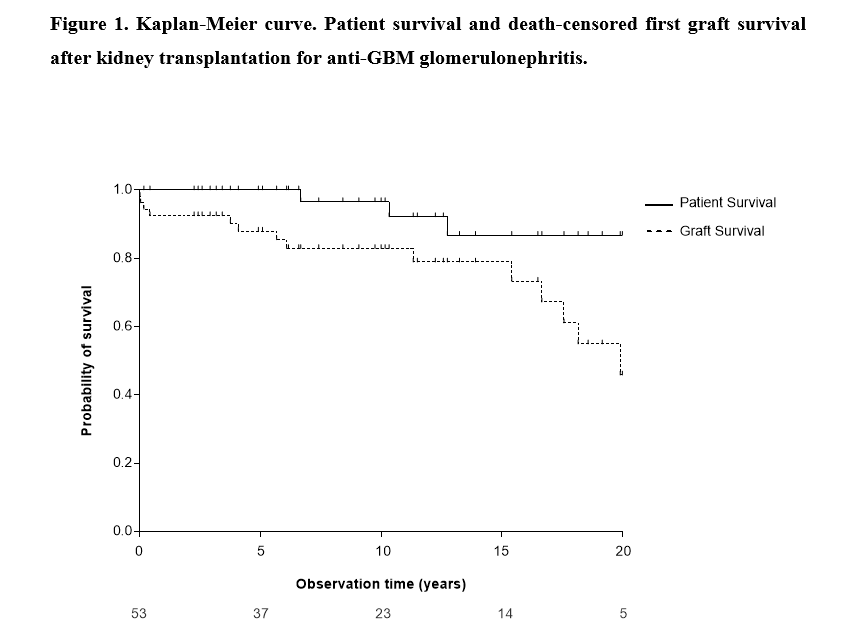Recurrence and Outcome of Anti-GBM Glomerulonephritis After Kidney Transplantation: A Belgian Multicenter Study
Nephrology, Cliniques Universitaires Saint-Luc, Brussels, Belgium
Meeting: 2021 American Transplant Congress
Abstract number: 1063
Keywords: Autoimmunity, Glomerulonephritis, Graft survival, Kidney transplantation
Topic: Clinical Science » Kidney » Kidney Complications: Immune Mediated Late Graft Failure
Session Information
Session Name: Kidney Complications: Immune Mediated Late Graft Failure
Session Type: Poster Abstract
Session Date & Time: None. Available on demand.
Location: Virtual
*Purpose: Recurrence of anti-glomerular basement membrane (anti-GBM) glomerulonephritis (GN) in the kidney graft is a rare event, described in limited case reports and registry analysis. The aim of this study was to evaluate in a large cohort of patients with detailed data collection and long follow-up the risk of recurrence of anti-GBM disease and graft loss caused by recurrence, the risk factors associated with clinical recurrence and the long-term patient and graft survival.
*Methods: Multicenter retrospective study. Inclusion criteria: patients with anti-GBM GN transplanted with a kidney between 1977 and 2015. Exclusion criteria: systemic vasculitis (except ANCA), lupus erythematosus and cryoglobulinemia. Clinical recurrence was defined as reappearance of signs of GN along with histological signs of proliferative GN and linear IgG staining on kidney biopsy, with or without anti-GBM antibodies.
*Results: Fifty-three patients were included. Clinical recurrence in a first kidney transplant occurred in only one patient five years after transplantation -a prevalence rate of 1.9%- in the context of cessation of immunosuppressive drugs. The graft was lost due to recurrence. Histological recurrence with linear IgG staining on kidney biopsy in the absence of histologic signs of proliferative GN was observed in four patients, in the context of cellular rejection. Two patients lost their kidney graft from severe acute rejection; the others fully recovered. Patient survival was 100%, 94% and 89% at 5, 10 and 15 years, respectively. Overall, death-censored first graft survival rates were 88%, 83% and 79% at 5, 10 and 15 years, respectively.
*Conclusions: Recurrence rate of anti-GBM glomerulonephritis after transplantation is very low, and associated with graft loss. The long-term patient and graft survival rates are excellent.
To cite this abstract in AMA style:
Coche S. Recurrence and Outcome of Anti-GBM Glomerulonephritis After Kidney Transplantation: A Belgian Multicenter Study [abstract]. Am J Transplant. 2021; 21 (suppl 3). https://atcmeetingabstracts.com/abstract/recurrence-and-outcome-of-anti-gbm-glomerulonephritis-after-kidney-transplantation-a-belgian-multicenter-study/. Accessed July 5, 2025.« Back to 2021 American Transplant Congress



